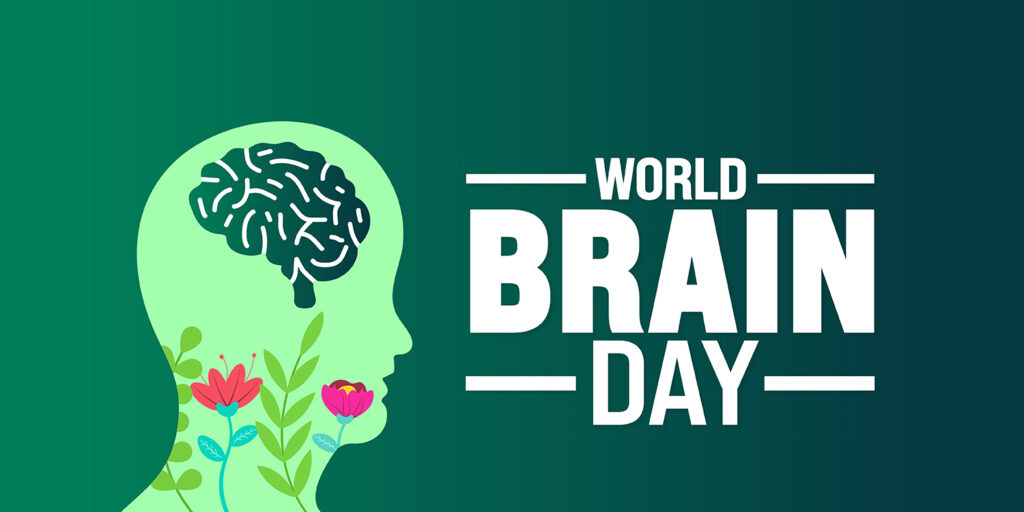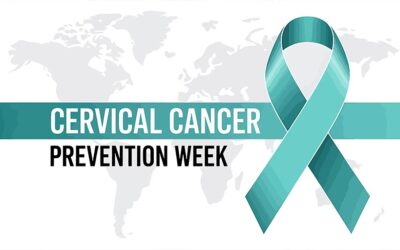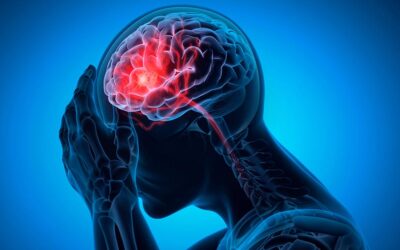World Brain Day 2025: How to Improve Brain Health and Recognise Early Warning Signs

The brain is the control centre of the human body, responsible for movement, memory, thinking, emotions, and coordination. Despite the significance, brain health often remains overlooked until a problem arises. Millions of people around the world live with brain-related conditions, many of which can be prevented or better managed with early awareness and lifestyle changes. World Brain Day is observed with an aim to bring attention to neurological health, promote early detection of brain disorders, and encourage people to take proactive steps toward protecting their cognitive well-being. In this article, we’ll discuss the significance of the day, common brain-related conditions, and simple ways to improve brain health. But first, let’s go through the history and significance of World Brain Day.
Table of Contents
ToggleWorld Brain Day 2025: History and Significance
World Brain Day is observed every year on July 22 to raise global awareness about brain health and neurological conditions. The campaign was initiated in 2014 by the World Federation of Neurology (WFN) and is now recognised internationally as a platform to educate the public, reduce stigma, and promote timely diagnosis and care for brain-related disorders.
The day serves as a reminder that brain health is a shared responsibility. Governments, healthcare professionals, caregivers, and individuals all play a role in spreading awareness and supporting early intervention. By participating in awareness activities, sharing accurate information, and promoting routine screenings, communities can take an active step toward improving cognitive health outcomes for all.
Why Brain Health is Important
The brain is one of the most vital organs in the body, controlling everything from physical movements to thoughts, emotions, and memory. Taking care of it is essential for overall health and daily functioning. Here’s why brain health matters at every stage of life:
- Controls essential body functions: The brain regulates breathing, heart rate, digestion, and coordination, allowing the body to function properly.
- Supports learning and memory: A healthy brain is key to concentration, problem-solving, decision-making, and retaining information, especially important in children and young adults.
- Helps manage emotions and mental well-being: Brain health is closely linked to mood, stress levels, and emotional stability.
- Prevents age-related decline: With age, the risk of memory loss and conditions such as dementia increases. Healthy habits can slow this process and preserve independence.
- Enables day-to-day activities: From walking and speaking to working and socialising, brain function plays a role in almost everything people do.
Common Brain Disorders and Early Warning Signs
Brain disorders can affect people of all ages and may range from mild to life-threatening. Some conditions develop suddenly, such as stroke, while others like Alzheimer’s or Parkinson’s disease progress slowly over time. Recognising early signs is crucial for timely diagnosis and treatment.
Here are some common brain disorders and what to watch out for:
- Stroke: Caused by interrupted blood flow to the brain.
Early signs: Sudden weakness on one side of the body, slurred speech, dizziness, and vision changes. - Epilepsy: A neurological condition marked by recurring seizures.
Early signs: Unusual sensations, brief moments of confusion, twitching, or staring spells. - Alzheimer’s Disease: A progressive disorder that causes memory loss and confusion.
Early signs: Forgetting recent events, difficulty finding words, and changes in mood or personality. - Parkinson’s Disease: A condition affecting movement and balance.
Early signs: Tremors, slowed movements, stiffness, changes in handwriting or speech, and disturbed sleep cycle. - Multiple Sclerosis (MS): An autoimmune condition that damages nerve coverings.
Early signs: Numbness, vision problems, fatigue, and trouble with coordination. - Brain Tumours: Abnormal growths in or around the brain.
Early signs: Persistent headaches, vision changes, nausea, and unexplained mood shifts.
How to Keep the Brain Healthy
Taking care of brain health doesn’t require drastic changes. Even simple everyday habits can make a big difference. These healthy lifestyle choices support memory, focus, mood, and long-term brain function. Here are some effective ways to keep the brain healthy:
- Eat a balanced diet: Include foods rich in antioxidants, healthy fats, and vitamins—such as leafy greens, berries, nuts, seeds, and whole grains.
- Get regular physical activity: Exercise boosts blood flow to the brain and helps reduce the risk of memory decline and mood disorders.
- Prioritise sleep: Aim for 7–9 hours of quality sleep each night to allow the brain to rest, repair, and process information.
- Stay mentally active: Keep the brain engaged through reading, puzzles, learning a new skill, or playing memory games.
- Manage stress: Chronic stress can affect brain function over time. Practice relaxation techniques such as deep breathing, meditation, or yoga.
- Avoid smoking and limit alcohol: These substances can damage brain cells and increase the risk of neurological disorders.
- Schedule regular health check-ups: Early screening for cognitive health can help detect issues before they progress.
How mental well-being supports brain health
Brain health and mental well-being are closely linked. When the brain is affected by stress, anxiety, or emotional strain, it can impact memory, concentration, mood, and overall functioning. Taking care of mental health is an essential part of keeping the brain healthy. Here’s how mental well-being supports brain health:
- Reduces risk of cognitive decline: Managing stress and emotional health helps protect memory and decision-making skills over time.
- Supports healthy sleep patterns: Good mental health leads to better sleep, which is vital for brain repair and memory consolidation.
- Improves focus and concentration: A calm, balanced mind helps with clear thinking and better productivity.
- Boosts emotional resilience: Positive mental health makes it easier to cope with daily challenges, reducing mental fatigue.
- Helps prevent chronic conditions: Long-term stress can increase the risk of hypertension and depression – both of which affect brain function.
How Hospitals Support Brain Health
Healthcare institutions play a crucial role in promoting brain health not only through treatment but also by focusing on early detection, patient education, and long-term support. At Graphic Era Hospital, the approach to brain health extends beyond managing illness to include prevention, awareness, and comprehensive care. The hospital supports both brain and mental health through dedicated services such as stress management therapy, mental wellness programmes, and personalised care for emotional well-being.
Here’s how hospitals contribute to better brain health:
- Cognitive Health Screenings: Regular assessments to check memory, thinking skills, and early signs of neurological decline.
- Neurology Consultations and Diagnostics: Access to specialists and advanced tools for diagnosing conditions such as stroke, epilepsy, or dementia.
- Mental Wellness Programmes: Support for emotional health through counselling, stress management, and therapy sessions.
- Health Education and Awareness Drives: Community-based outreach and awareness campaigns to inform the public about brain health and early warning signs.
- Rehabilitation and Long-Term Support: Personalised care plans including physical therapy, cognitive exercises, and follow-up for patients recovering from brain injuries or neurological conditions.
By combining expert care with community awareness, Graphic Era Hospital is committed to helping individuals protect and maintain their brain health at every stage of life.
World Brain Day Activities and Awareness Ideas
At Graphic Era Hospital, we recognise the importance of community involvement in spreading awareness about brain health. World Brain Day is an opportunity to highlight key issues and inspire collective action through meaningful activities across schools, healthcare settings, and the digital space. Here are some awareness ideas we support and encourage on this occasion:
- Awareness Talks and Interactive Sessions: Short sessions on topics such as early signs of brain disorders, mental well-being, and healthy lifestyle practices can help people make informed choices.
- Cognitive Health Screenings: Offering basic assessments for memory, attention, and other cognitive functions can promote early detection and timely care.
- Poster and Slogan Competitions: Engaging students in creative contests is a great way to involve young minds in promoting brain and mental wellness.
- Yoga and Stress Relief Activities: Community-based events focused on relaxation and mindfulness can reinforce the connection between emotional balance and brain function.
- Social Media Campaigns: Sharing expert insights, facts, and stories online helps expand the reach of brain health education using hashtags like #WorldBrainDay.
- Patient Stories and Testimonials: Real-life experiences of individuals living with or recovering from brain conditions can inspire others to seek help and break the stigma.
By supporting these awareness efforts, Graphic Era Hospital remains committed to encouraging a culture where brain health is prioritised at every stage of life.
Final Word
Brain health affects every part of life, such as memory, movement, mood, and relationships. World Brain Day 2025 reminds us that early awareness, healthy habits, and timely support can go a long way in preventing serious neurological problems. Graphic Era Hospital offers expert-led neurological care, mental wellness programmes, and health education services to support individuals/ brain health at every stage of life. For screenings, consultations, or personalised brain health support, call 18008897351 to book an appointment today.
Frequently Asked Questions
When is World Brain Day observed each year?
World Brain Day is observed on July 22. It is led by the World Federation of Neurology and focuses on global awareness of brain-related issues and how to prevent or manage them effectively.
What is the theme of World Brain Day 2025?
The official theme for World Brain Day 2025 is expected to be announced by the World Federation of Neurology (WFN) closer to the date. Past themes have focused on topics such as stroke, migraine, and brain health for all.
What are some good World Brain Day quotes for awareness campaigns?
Here are a few impactful quotes:
- “A healthy brain is the key to a fulfilling life.”
- “Don’t take your brain for granted—take care of it every day.”
- “Brain health is not a luxury; it’s a necessity.”
What are the early signs of brain disease to watch out for?
Early signs may include persistent headaches, memory loss, mood changes, confusion, or difficulty with speech, movement, or coordination. These symptoms should not be ignored and may require medical attention.
How can brain health be improved naturally?
Brain health can be supported through regular exercise, a balanced diet, quality sleep, mental stimulation, and effective stress management therapy. Avoiding tobacco, limiting alcohol, and staying socially active also help.
What kind of World Brain Day activities can be organised in schools or hospitals?
Activities include awareness talks, memory games, stress-relief workshops, poster-making contests, and social media challenges. These events help educate people of all ages about brain health.
What is International Brain Day and how is it different from World Brain Day?
International Brain Day is another name often used for World Brain Day, observed on July 22 each year. Both terms highlight the same global initiative aimed at raising awareness about brain health and neurological disorders.
What are neurodegenerative diseases and why are they concerning?
Neurodegenerative diseases are conditions where brain cells gradually lose function and die over time. Common examples include Alzheimer’s disease, Parkinson’s disease, and ALS. These illnesses affect memory, movement, and daily functioning, and are often progressive and difficult to reverse.
How can I improve brain health through daily habits?
Simple steps such as getting enough sleep, eating brain-friendly foods, staying mentally active, managing stress, and avoiding tobacco or excess alcohol can help improve brain health over time.
What is the link between brain health and lifestyle?
Brain health and lifestyle are closely connected. Physical activity, balanced nutrition, social interaction, and emotional well-being all contribute to better brain function and reduce the risk of cognitive decline.
Why is brain health important even if I feel fine?
The importance of brain health goes beyond avoiding illness. A healthy brain supports memory, learning, emotions, coordination, and decision-making, which is vital at every stage of life. Preventive care and early awareness help reduce long-term risks.
By Specialities
- Bariatric Surgery
- Cancer Care
- Cardiology
- Dental
- Dermatology
- Diabetes & Endocrinology
- Endocrinology and Diabetes
- ENT (Ear Nose Throat)
- Eye Care
- Gastroenterology
- Haematology
- Health Care
- Health Tips
- Hematology
- Hepatology
- Internal Medicine
- Mental Health and Behavioural Sciences
- Metabolic
- Neonatology
- Nephrology
- Neurology
- Nutrition & Dietetics
- Obstetrics & Gynaecology
- Oncology
- Ophthalmology
- Orthopaedics
- Paediatric
- Physiotherapy & Rehabilitation
- Plastic and Reconstructive Surgery
- Psychology
- Pulmonology
- Rheumatology
- Spine
- Urology
Recent Posts
- Cervical Cancer Prevention Week 2026: A Global Call to Prioritise Cervical Health
- World Leprosy Day 2026: Why Awareness is Still Important Today
- What is a Stroke: Causes, Symptoms & Treatment
- Glaucoma Awareness Month 2026 : Raising Awareness to Prioritise Eye Health
- Understanding Menopause: Stages, Symptoms, and Management
Need expert medical advice?
Share your details and our healthcare specialists will reach out to assist you.
By proceeding, you acknowledge and agree to our Privacy Policy, Terms of Use, and Disclaimer.




















